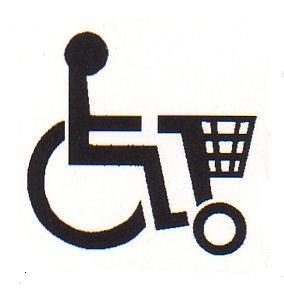
Now the Christmas and New Year celebrations are upon us; it also allows us the opportunity to reflect on the year that is nearly at an end, and to also look forward to the year ahead.
This time of year, allows us to not only reflect on the difficulties and struggles that have occurred due to chronic illness, but we can also reflect on what the year has brought us and express gratitude for the positive moments or for the people who have supported us and made life with chronic illness a little easier.
Every person; whatever their situation and whatever struggles they live with, every year brings many ups and downs. And living with chronic illness brings more downs than ups, but still we are able to find gratitude in all the positives that happen during the year. An example, of such a positive thing that has happened to me during 2013 is finding such a strong support network, especially on social networks such as Twitter. This year has seen me find many special and caring friends that make living with my neurological condition a little easier – they pick me up when I am down or struggling, and send me messages of congratulations on the successes. This year, through all the bad times, I am grateful for friends such as Anya and Aisha for all of their friendship and support, and of course all of the other wonderful spoonies who have messaged me support throughout the year, for which there are many – thank you!
Again, this year has also seen me gain another nomination for a WEGO Health Award; so for the bottom of my heart I would like to thank the person who nominated me for the award – I am truly honoured.
I also have to be so thankful for everyone who has taken the time to read, liked, shared and commented on my many blog posts throughout the year. I have shared much of my life and experiences of living with a neurological condition, and so I am grateful for everyone who takes the time to read, and perhaps even take something out of it, such as a little more compassion or understanding of those living with chronic conditions. During the coming year, however I would like to connect with even more people living with and experiencing chronic illness, so please feel free to get in touch whether it be by email, Facebook or Twitter and share your story and experiences.
There were however, many downs also. The symptoms that I experience such as the dizziness, trembling in the legs and the pain have all increased and worsened exponentially compared to when they first started. In addition, the days where I am unable to get out of bed because of the weakness, pain or dizziness (sometimes all of the above!) have also increased. This year has also seen the increased use of my wheelchair; last year, I only used the wheelchair on very rare occasions. However, as the symptoms have become worse, with the trembling and weakness in the legs becoming such a problem, that the wheelchair is used at least once a week if out for long periods such as the days out with my carer, going to the social group that I attend and hospital appointments, and so on. In addition, with all the dips that have occurred, depression, have also reared its ugly head at times making the journey through chronic illness even harder.

But now, as the year is drawing to a close, it is time to start looking forward and to the possibilities that the mew year has to offer. The beginning of the year for me involves three hospital appointments for an introduction to a Neurophysiotherapist as well as tests to help narrow down the cause of the dizziness – so here’s hoping for more answers and an effective treatment plan! And next year I also have a cruise around the Mediterranean to look forward to in May. And perhaps I will discover new and beautiful places to discover with my carer, although for me nothing could top ‘The Potting Shed‘ in Llantrisant.













